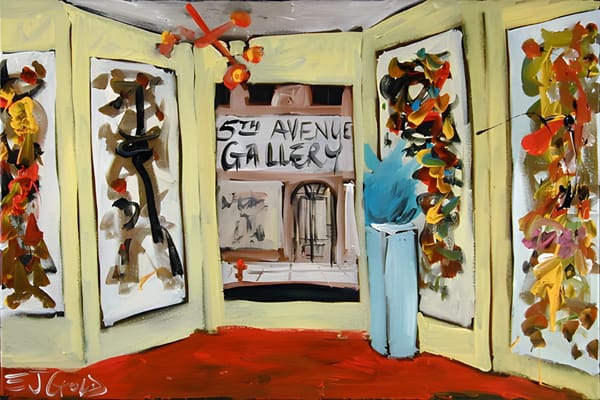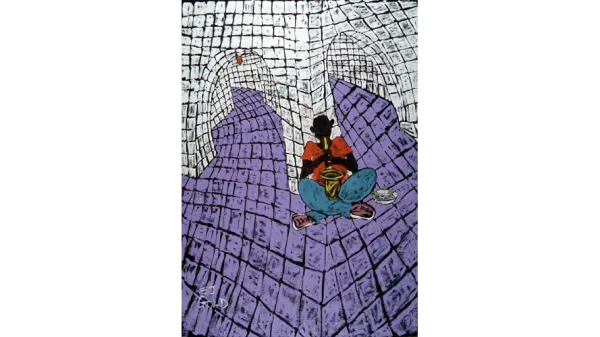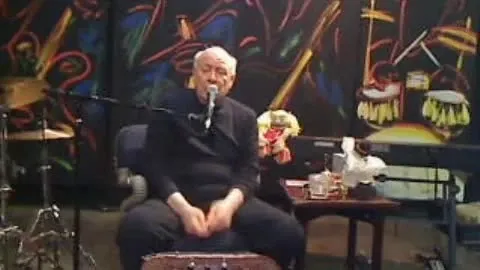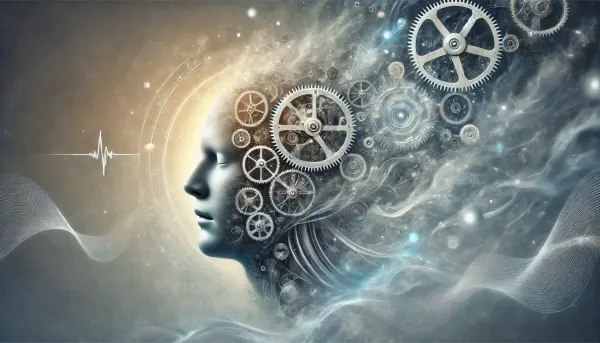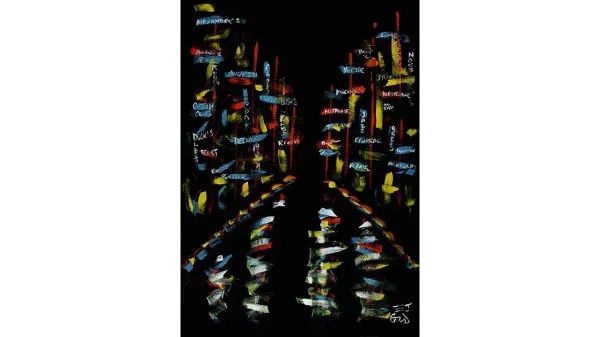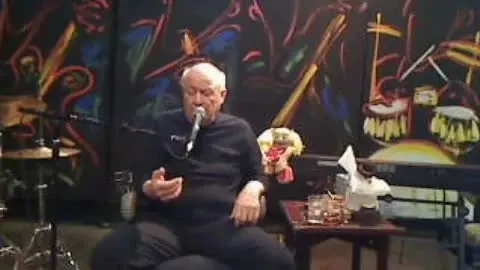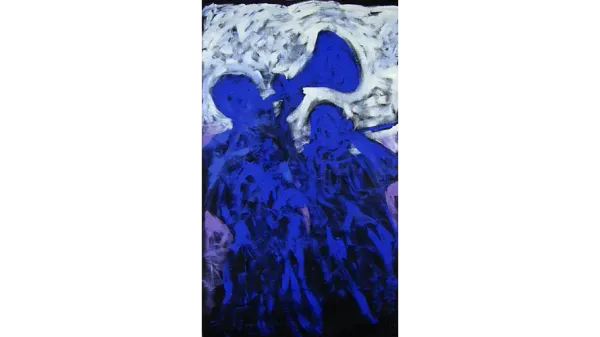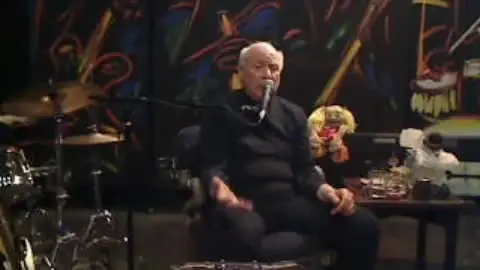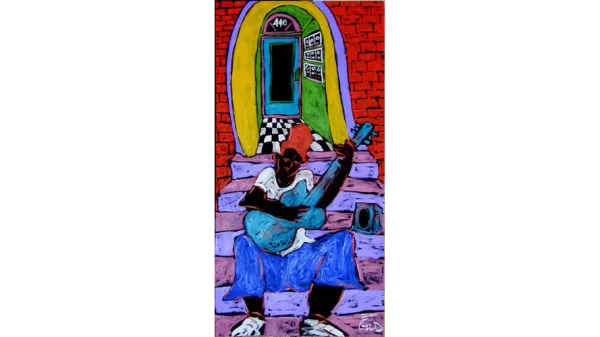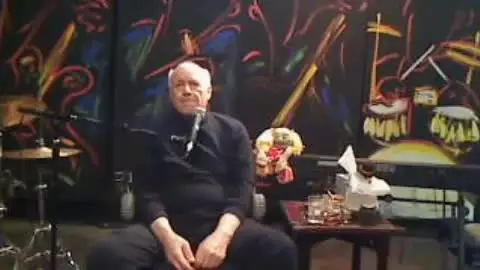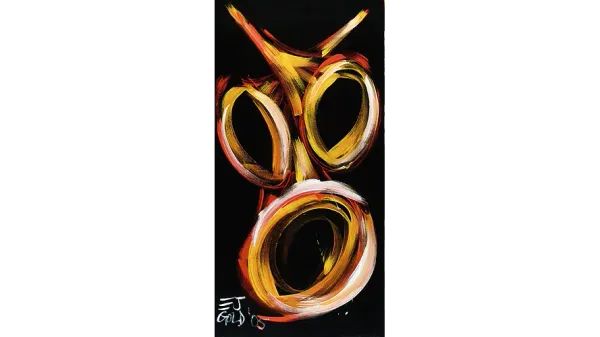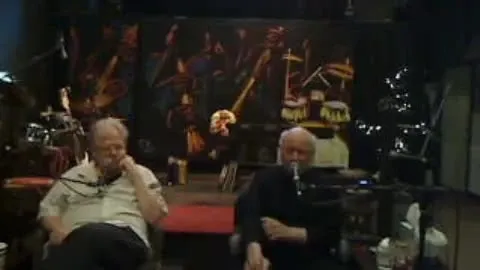Sheep in Sleep
We live in a dream, believing we're awake. Our "machine"—body and mind—performs complex tasks automatically as we remain unconscious. The first step toward awakening? Sense this mechanical sleep during daily activities. Not intellectually, but as felt reality. Only then can real work begin.
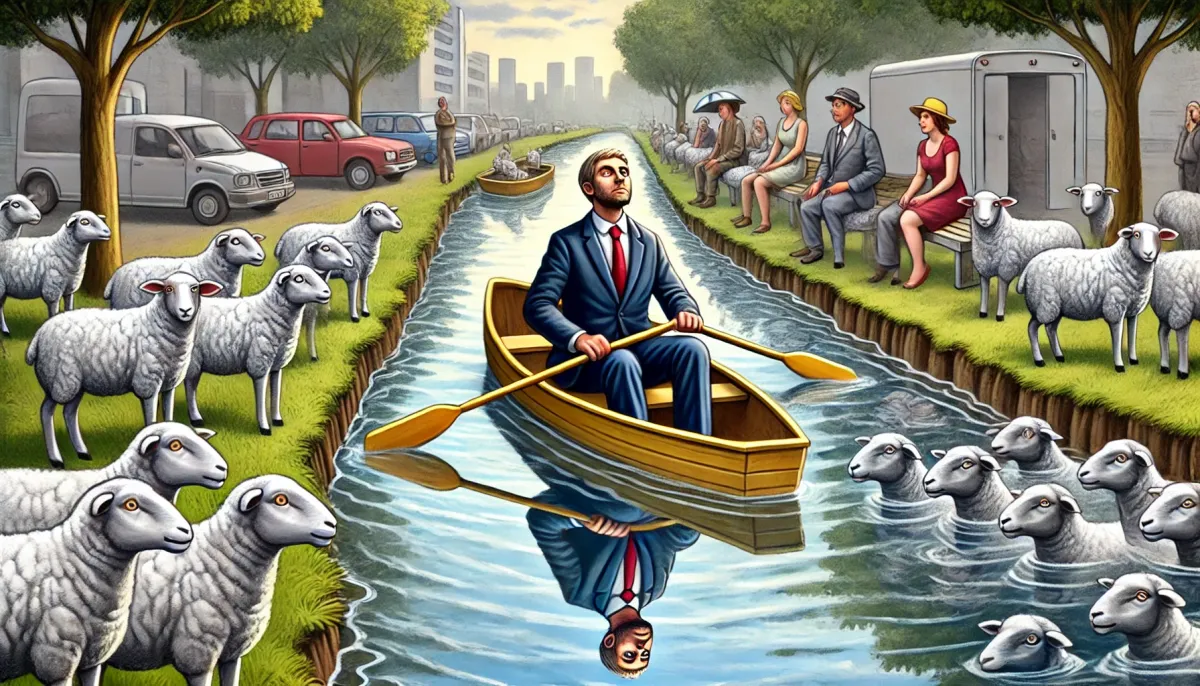
Ladies and gentlemen! Tonight's headline act: The Amazing Sleeping Human! Watch in astonishment as it performs complex tasks while completely unconscious! Marvel as it insists it's awake! Gasp as it follows social rituals like a programmed robot! No refunds if you fall asleep during the performance—you already were!
🎧 Listen Now: Episode 9 of The HBM Show
The Machine's Slumber
What if everything you believe about your waking state is merely an illusion? A comfortable fiction your vanity maintains to protect itself from a more unsettling truth: you are asleep, and have been your entire life.
Not literally unconscious, of course. This isn't about the conventional definition of sleep. Rather, we're discussing a particular state of mechanical existence where we function automatically, responding by reflex to inner and outer influences without genuine awareness.
Our attention remains completely immersed in a sleeping machine—this body and personality we call "I"—believing we possess volition and free will when our actions are merely automatic responses. We dress ourselves, drive to work, hold conversations, and even have emotional reactions, all while fundamentally asleep.
The Vanity of Imagined Wakefulness
"But how can I be asleep?" you might protest. "Look at all I accomplish! How can I cook dinner, have complex conversations, or solve problems if I'm not awake?"
This reaction represents the first barrier to genuine self-observation. Our vanity cannot bear the suggestion that we're anything less than fully conscious beings. Like a drunk person insisting they're perfectly sober, the sleepier we are, the more convinced we feel of our wakefulness.
Our mechanical mind supports this illusion with constant activity, sensations, and associative thought. The hands gesticulate wildly as if with minds of their own. The mouth issues proclamations that bear little resemblance to our true feelings. Meanwhile, we follow arbitrary schedules and timelines, becoming upset about imaginary trifles.
We witness the sinister purpose of social ritual: it perpetuates the machine's sleep, allowing it to function day after day without a master.
Beginning Work in Sleep
If we truly wish to evolve beyond this mechanical existence, we must first accept a counterintuitive truth: all work toward awakening must necessarily begin while in sleep. After all, if we were already awake, we would have no need for such work in the first place.
This creates our fundamental dilemma: How can we work on awakening when the very apparatus we would use for this work—our mental faculty—is itself part of the sleeping machine?
The answer involves what we might call "jiu-jitsu yoga"—using the habits and hungers of the machine against its own inclination to remain asleep. But this requires outside guidance. If we trust the machine to invent methods for its own awakening, its sleep will only deepen, and we'll drown in its dreams.
Sensing the Sleep State
Our first real step toward awakening lies in developing the sensation that the machine is truly asleep. Not as an intellectual concept, but as a felt reality. This sensation becomes the foundation of all genuine work.
We can use our attention to carefully observe everything the machine does. Through patient observation, we gather evidence that convinces us beyond doubt of its mechanical nature. We see how it thinks by automatic association, conducts internal dialogues without our participation, and responds in complex patterns to all situations.
By separating ourselves from the machine through this observation, we create a small space of genuine awareness. We sense that while the machine sleeps, something in us can witness this sleep.
The Dream of Life
Children's rhymes sometimes contain profound wisdom. Consider the nursery rhyme that tells us "life is but a dream." This isn't mere whimsy but points toward an essential truth about our condition.
When we allow ourselves to become as children—curious, open, sensing rather than analyzing—we can use such simple tools to alter our perception. Through specific practices involving posture, relaxation of the facial mask, and repetition with the right quality of attention, we can induce the sensation of the sleeping machine.
This sensation, once established, makes all intellectual arguments for work unnecessary. It becomes our direct experience, our lived reality.
Living in Two Worlds
The practical challenge becomes maintaining this sensation of the sleeping machine throughout our daily activities. We continue our normal lives—family responsibilities, work obligations, tax problems—without trying to escape them.
When we sense the machine's sleep during ordinary activities, we establish a dual consciousness: one part fully engaged with life, another part observing the mechanical nature of that engagement.
Our intellect may tell us we're awake, but our sensing tells us the machine sleeps.
Our beliefs may convince us we're awake, but our sensing tells us the machine sleeps.
Our vanity may insist we're awake, but our sensing tells us the machine sleeps.
If we can maintain this sensation, we've taken the first real step toward awakening. Until then, everything—especially our work on ourselves—remains imaginary, mere fantasy.
The Beginning of Real Work
The journey begins with a simple question: "Is it possible my machine is asleep? Could this rumor be true?" From this modest seed grows the possibility of transformation.
Our first task is simply to gather evidence—to obtain glimpses of this truth through careful observation. Not to immediately change anything, but to verify through direct experience the sleeping state of our machine.
For in this recognition lies the foundation of all genuine work toward awakening. The sensation of the sleeping machine becomes our first foothold on a path toward genuine consciousness.

